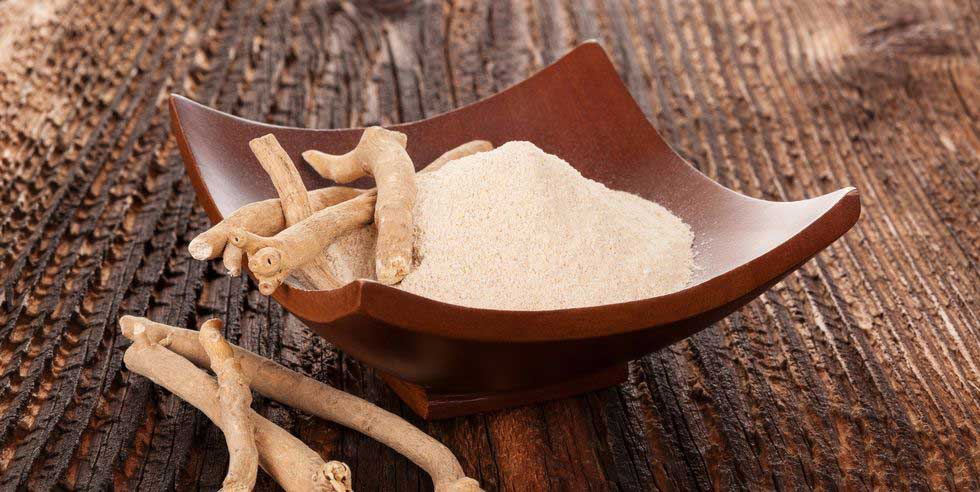If you have ever wondered if there are natural ways to combat the stress of daily life or require a great body and mind enhancement, you may have heard of the wonders of ashwagandha. The use of ashwagandha has been around for many generations. With modern science finding more ways to confirm its effectiveness and the benefits of ashwagandha, the popularity and use of this herb have started to pick up in more recent years.
“You Were Born to Win, but to Be a Winner, You Must Plan to Win, Prepare to Win, and Expect to Win.”
―Zig Ziglar
What Is Ashwagandha?
“I will not erase all my hard work this week because it’s the weekend.”
―Unknown
Ashwagandha (Withania somnifera) is an ancient medicinal herb and is a small evergreen shrub with yellow flowers and red berries that resemble husk cherries and tomatillos. Ashwagandha is most commonly found in India and grows throughout other parts of Asia, Africa, and the Middle East. The extract from the plant’s ground root or leaves has been found to treat a broad range of conditions, and it is known to be called the king of Ayurvedic herbs as it holds quite a few medicinal properties that may help benefit physical and mental health.
The name ashwagandha is a Sanskrit word that translates to “horse smell” in regards to the herb’s distinctive smell. No need to worry about the smell if you’re reaping ashwagandha benefits in a capsule form as the encapsulation, if done correctly, will contain the odor.
Benefits of Ashwagandha
“Don’t tell people about your dreams. Show them your dreams.”
–Unknown
When it comes to the benefits of ashwagandha, it is primarily known for its use as an adaptogen, as it helps the body combat the symptoms of stress. It has several other health-promoting benefits such as being a metabolism and energy booster, improving thyroid and joint function, blood sugar control, having anti-inflammatory properties, improving sleep, as well as improving cognitive performance.
Supports the Stress Response
The area that ashwagandha works with for stress response is the pituitary gland’s portion underneath your brain. The pituitary gland is responsible for producing hormones, and the critical hormone that creates the stress response is cortisol. Ashwagandha supplements help lower the amount of cortisol whenever a stress-triggering event may happen, helping the individual feel more relaxed and overall in a better state of being.
When the body starts to produce cortisol, this causes the body to essentially go into fight or flight mode, which then leads to an increase in adrenaline production, heart rate, and body temperature. A spike of energy will happen for a short amount of time but will often leave the individual feeling weary and exhausted afterward.
Being in this state for prolonged periods can also lead to other problems such as anxiety, memory loss, or poor brain function and can even cause accelerated aging. So you can use ashwagandha benefits to help lower cortisol amounts, which can have vastly positive advantages.
A 2019 study published in Cureus found that ashwagandha supplementation supported in lowering cortisol levels in both female and male subjects [1]. Further, the study found that it helps better sleep quality. Another study published in the Research and Development Center of Salt Lake City on stressed but otherwise healthy adults found that greater dosages of ashwagandha yielded better responses (up to the upper limit of 1000mg a day) [2].
Subjects who took the most ashwagandha had the highest reduction in cortisol levels—30% on average. Unfortunately, the latter study didn’t specify the quality and purity of the ashwagandha extract used. It is fair to assume it was a middle-of-the-road quality extract as those are most common.
Also, as the concentration of withanolides increases in a high purity extract, the quantity of extract needed decreases to trigger the desired effect.
For a discussion of the best nootropics for stress click here.
Supports Energy and Exercise Performance
Many prefer taking ashwagandha for an energy booster instead of coffee, tea, or other caffeinated beverages. It avoids the pesky side effects of caffeine such as anxiety or the jitters, or the addictive properties of caffeine. Since ashwagandha lowers cortisol levels, this will help your body feel more energized, especially during a stressful event in your life and even when performing more strenuous activities such as exercise. In 2015, a study was done by the Journal of the International Society of Sports Nutrition, which had men ages 18-50 years old take 300 mg of ashwagandha as a supplement for weight training for eight weeks [3].
The results of this study showed that those who took the supplement showed an increase in muscle strength while performing the bench press and leg extension exercise, a significant increase in arm muscle mass, a decrease in exercise-induced muscle damage, reduction in body fat percentage, as well as a considerable increase in testosterone levels as opposed to the placebo group.
The exercise performance effects aren’t just limited to muscular exercise; it is also proven to boost cardiovascular endurance. A recent review published in Nutrients shows that two daily doses of ashwagandha yielded significant benefits in cardiorespiratory endurance of both male and female subjects [4].
Supports Brain Function and Mental Cognition
Ashwagandha contains many neuroprotective qualities. It has been shown to boost memory recall, increase focus and concentration as well as reaction time. Ashwagandha contains compounds called withanolides, which are naturally occurring steroids (not the anabolic kind of steroids) that improve cognitive brain function. The plant also increases acetylcholine levels, a crucial neurotransmitter, in the brain, improving memory, attention span, brain function, and mental processing capacity.
A controlled clinical study performed on 30 healthy participants and published in the Journal of dietary supplements found that ashwagandha improved the sensorimotor system, response to auditory stimuli, faster problem-solving, and the ability to remember faces [5].
Supports Healthy Metabolism and Immunity
Ashwagandha is rich in antioxidants that are beneficial for weight loss. This can help speed up your metabolism, which helps burn stored fat in the body and decrease inflammation. Another one of the benefits of ashwagandha is that it helps by boosting immunity and also has antibacterial properties which can combat inflammation (not the mention what decreases inflammation does to brain efficiency and mood).
When your immune system is weakened, this herb can help redirect some of the energy the body uses, protecting itself back into the weight loss process.
Supports Sleep
The benefits of ashwagandha also extend to sleep. Since ashwagandha helps lower cortisol levels and hence reduces stress, with your body not being in that fight or flight mode as often, this will help your body relax sooner and help you get a longer night’s sleep.
It is also proven beneficial to those who have insomnia. A recent study published in the Journal of Ethnopharmacology done on 40 healthy subjects and 40 subjects with insomnia who took ashwagandha extract for a total of 8 weeks discovered that the supplementation improved sleep in all subjects significantly [6]. The improvements in the subjects with insomnia were more significant. It was beneficial towards sleep efficiency, total sleep time and decreased the number of times an individual woke up after sleep onset.

Ideal Dosage of Ashwagandha
“Make your fear of losing your greatest motivator.”
–Unknown
Clinical studies say anywhere from 120-1250 mg with a standard 2.5% withanolides extract can be taken daily when it comes to ashwagandha root extract dosage. The whole root version of ashwagandha would be a dosage of 2-10 g of powdered root daily.
Marco’s Grounds uses 11% withanolides extract in Maximum Mind, meaning you’ll get more than four times the concentration for the same amount of extract.
It is best to start with a lower dosage when starting a new supplement, as some users have reported nausea, stomach upset, or diarrhea as some of the symptoms, especially with higher doses. Taking the supplement with food also helps combat any nausea.
If you have any other questions or are unsure about the benefits of ashwagandha or have any other health implications such as stomach sensitivity or take any medication, it is always best to consult your doctor before supplementing.

Who Benefits From Ashwagandha
“A champion is afraid of losing. Everyone else is afraid of winning.”
―Billie Jean King
Ashwagandha’s main benefits are stress reductions, a clear mind through better sleep, fatigue resistance, and overall cognitive improvement.
Some of the best use cases to make the most out of the benefits of ashwagandha are for people who have stressful lives, as these persons will immediately benefit from reduced stress. People who have difficulty sleeping and absolutely need to perform on the following day will also experience the positive effects of supplementing with ashwagandha at overproportional rates.
Simply said, people who want a clear mind, better endurance, more profound sleep, and generally an optimally functioning brain will enjoy the benefits of ashwagandha.
To name a few examples of occupations that would benefit from incorporating ashwagandha in their supplementation strategy:
- Entrepreneurs as high levels of anxiety come with creation and responsibility
- Surgeons who need to perform with high stakes and high demanding physical and mental output
- Freelancers who work in changing environments and could use the fatigue-reducing properties of ashwagandha
- Poker players who want to manage their emotions and remember the cards that have been played
- Students who want to stay composed under stress while taking tests or learning for them
- Pilots who need to be able to withstand fatigue while being alert and able to expend cognitive effort over a long period of time
The list is broad and these are just the tip of the iceberg when it comes to people who can benefit from ashwagandha. All in all, ashwagandha is beneficial for people who have stressful life conditions, have difficulties sleeping and could benefit from their brain functioning naturally at a higher RPM.
Ideally, you’d start an ashwagandha regiment about 2 to 3 weeks before the event you want to be on your A-game for as it takes some time for ashwagandha to load in your system. It can also be taken all year as an “insurance policy” as long as it is cycled like for Maximum Mind clients.
Conclusion
“Nothing is worth more than this day.”
–Johann Wolfgang von Goethe
Ashwagandha is an ancient medicinal herb also contained in Maximum Mind with various benefits notably when it comes to reducing the effects of stress on the body, promoting sleep, reducing fatigue, and increasing mental capabilities. We covered the vast and substantial benefits of ashwagandha above.
Ashwagandha can be an important ace up the sleeve of people with demanding jobs who need to push themselves constantly as it attenuates the likelihood of sleep deprivation and elevates performance under stress for complex tasks. All of these properties together make ashwagandha a great supplement to incorporate into anyone’s regimen for good health and performance.
Why not experience the benefits of ashwagandha in their purest form along with other clinically studied compounds for increasing brain performance and health with Maximum Mind?
Read more about ashwagandha on the Marco’s Grounds Deep Dive or dig deeper into the benefits of ashwagandha here.
Literature
- Salve, J., Pate, S., Debnath, K., & Langade, D. (2019). Adaptogenic and Anxiolytic Effects of Ashwagandha Root Extract in Healthy Adults: A Double-blind, Randomized, Placebo-controlled Clinical Study. Cureus, 11(12), e6466.
- Abedon, B., & Ghosal, S. (2008). A standardized Withania somnifera extract significantly reduces stress-related parameters in chronically stressed humans: a double-blind, randomized, placebo-controlled study.
- Wankhede, S., Langade, D., Joshi, K., Sinha, S. R., & Bhattacharyya, S. (2015). Examining the effect of Withania somnifera supplementation on muscle strength and recovery: a randomized controlled trial. Journal of the International Society of Sports Nutrition, 12, 43.
- Wankhede, S., Langade, D., Joshi, K., Sinha, S. R., & Bhattacharyya, S. (2015). Examining the effect of Withania somnifera supplementation on muscle strength and recovery: a randomized controlled trial. Journal of the International Society of Sports Nutrition, 12, 43.
- Choudhary, D., Bhattacharyya, S., & Bose, S. (2017). Efficacy and Safety of Ashwagandha (Withania somnifera (L.) Dunal) Root Extract in Improving Memory and Cognitive Functions. Journal of dietary supplements, 14(6), 599–612.
- Langade, D., Thakare, V., Kanchi, S., & Kelgane, S. (2021). Clinical evaluation of the pharmacological impact of ashwagandha root extract on sleep in healthy volunteers and insomnia patients: A double-blind, randomized, parallel-group, placebo-controlled study. Journal of Ethnopharmacology, 264, 113276.












